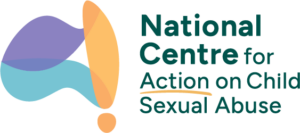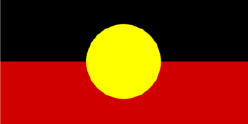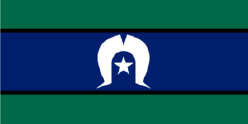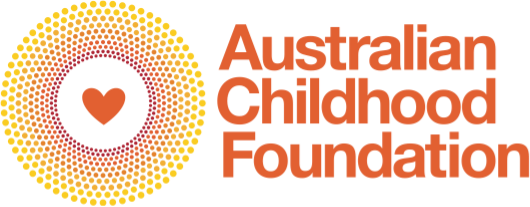Purpose
At the National Centre on Child Sexual Abuse (National Centre), we are committed to safeguarding personal information in compliance with the Privacy Act 1988 (Cth) (Privacy Act) and Australian Privacy Principles (APPs). This Privacy Statement outlines our practices regarding the collection, use, storage, and sharing of personal information. It is our responsibility to protect the privacy and rights of individuals, including employees, volunteers, students, subcontractors and others who engage with our organisation.
This statement describes how the National Centre collects and uses personal information when someone uses the National Centre’s website. By using The National Centre’s website, you consent to the data practices described in this statement.
There are elements of the National Centre’s website which can be viewed without providing personal information. However, if you choose to Connect with Us by subscribing or submitting a comment you will be required to submit personally identifiable information including your name and email address. You may choose to use a pseudonym.
Definitions
As defined in the Privacy Act:
Personal information means information or an opinion that can be reasonably used to identify that individual, whether or not the information or opinion is true or recorded in a material form.
Sensitive information is a subset of personal information, including details about an individual’s race, political beliefs, religion, sexual preferences, criminal record, and health, which require enhanced privacy protection.
Collecting information about whether someone has experienced child sexual abuse is considered sensitive information.
Australian Privacy Principles (APPs) relating to the collection of sensitive information relating to sexual abuse:
APP 3 – Collection of Solicited Personal Information: Requires that sensitive information be collected only with the individual’s consent and only if necessary for the entity’s functions or activities.
APP 6 – Use or Disclosure of Personal Information: Limits the use or disclosure of sensitive information to the purposes for which it was collected unless consent is obtained, or another exception applies.
APP 10 – Quality of Personal Information: Ensures that sensitive information held is accurate, up-to-date, and relevant.
Collection of Information
We collect personal information only through lawful means, and where consent is obtained or required by law. This includes information obtained through interactions such as: project or research participation, website inquiries, communication via email, phone, or social media and legal requirements.
Sensitive information will only be collected, when necessary, with consent, or when required by law.
Use of Personal Information
Personal information is used to communicate with stakeholders, respond to enquiries and complaints, provide updates on services and events, conduct research, analysis, and audits, ensure the security of our systems and to comply with legal obligations.
We may share (disclose) personal information with third parties in certain situations, such as with funders or partners when necessary for our contractual obligations, or if required by law. All disclosures will be handled with the utmost care and in compliance with the Privacy Act.
Storage and Security
We implement robust measures to protect personal information from misuse or unauthorised access. These include secure storage systems, access controls, and regular reviews of privacy practices. Personal information is retained only for as long as needed and securely disposed of when no longer necessary.
Rights of Individuals
Individuals have the right to access and correct the personal information we hold about them. Requests for access or correction can be made by contacting us directly. We will respond to such requests in accordance with legal requirements.
Direct Marketing and Cookies
We may use personal information for our own marketing purposes with the individual’s consent, which is given by subscribing to our newsletter or completing a form, survey, questionnaire, or similar.
Individuals can opt out of receiving marketing communications at any time.
Our website uses cookies to improve user experience, though no personal information is collected through these cookies.
Sharing your personal information
The National Centre is committed to protecting your personal information and will not use or disclose it without your direct and informed consent, which is gained through completing a consent form, unless permitted by law. We may disclose personal information in the following circumstances:
- When required by law or court order.
- To prevent serious harm to an individual, a third party, or the public.
- If we become aware of unlawful activity or misconduct.
- To meet contractual obligations with our funders.
- When hiring third-party service providers (e.g. consulting services etc.), who will only access necessary information and are required to maintain confidentiality.
We ensure that any recipients of your personal information adhere to Australian privacy standards. The National Centre does not permit third parties to use information for their own business purposes.
Overseas Disclosures
While we typically do not disclose personal information overseas, if necessary, we ensure that recipients comply with Australian privacy laws.
Changes to this Privacy Statement
The National Centre may make amendments to this Privacy Statement at any time.
Contacting us
The National Centre welcomes your comments regarding this Privacy Statement. If you have any questions about this Privacy Statement or wish to access or correct your personal information or believe the National Centre has not adhered to this Privacy Statement, please contact us:
Mail:
The National Centre for Action on Child Sexual Abuse
Level 1
675 Victoria Street
Abbotsford 3067 VIC
E-mail:
• For any general queries or privacy matters: info@nationalcentre.org.au
• For complaints: complaints@nationalcentre.org.au
Depending on the nature of the comments or queries, we may need to share your communication with other National Centre staff members or senior management.
By using our services or engaging with us, you acknowledge that you have read and understood this Privacy Statement, and consent to the collection, use, and storage of your personal information as outlined above.






